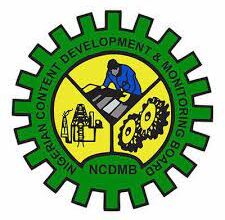Nigeria Imported 23.5bn Litres Of PMS In 2022 -NMDPRA Boss

The Nigerian Midstream and Downstream Petroleum Regulatory Authority (NMDPRA) has said that the nation imported an estimated 23.5 billion litres of Premium Motor Spirit (PMS), popularly called petrol, in 2022.
Delivering a keynote address on ‘the Nigeria government policy on petroleum subsidy removal’ at the Environment for Development Initiative Annual General Meeting (AGM) in Accra, Ghana, Authority Chief Executive (ACE), Nigerian Midstream and Downstream Petroleum Regulatory Authority (NMDPRA), Engr. Farouk Ahmed hinted that the average daily truck out of Premium Motor Spirit (PMS) has since slide from 66.9 million litres per day to 44.6 million litres following fuel subsidy removal.
He added: “Last year alone, Nigeria imported 23.5 billion litres of PMS. Our average daily truck out in the years 2021 and 2022 was 61.9 million and 66.7 million litres respectively. The truck-out reached its peak in the first half of the year 2023, at a daily average of 66.9 million litres.”
He stressed that the removal of subsidy was facilitating the development of healthy competitive markets and operational efficiency that would promote private sector investment in the downstream value chain of Nigeria’s oil and gas sector.
Listing the benefits of the deregulated downstream sub-sector, Ahmed stated that aside from the immediate fiscal and market improvements that are already being enjoyed from the complete removal of subsidy, there is also a strong ignited appetite for Autogas penetration focusing on CNG and LPG as the cheaper and cleaner alternatives which will compliment Nigeria’s transition towards a sustainable, reliable, and affordable energy sufficient future.
According to him, the regulatory framework of the Petroleum Industry Act (PIA) 2021 as administered by the NMDPRA is aimed at ensuring healthy market competition, fair product pricing, adequate consumer protection, health and safety standards, and optimal innovation and investments in the fully deregulated supply chain of petroleum products.
The NMDPRA boss highlighted that implementation of the reform is being driven through effective policy management which includes continuous stakeholder engagement and provision of reliefs which include an interim wage increase of N35,000 for workers, in line with an agreement with organised labour; provision of CNG-powered mass transportation systems.
He added that the reform also involves direct cash transfers to 15 million most vulnerable Nigerians, removal of VAT on diesel, and provision of special funding for Micro, Small, and Medium Enterprises (MSMEs).
On how to deepen the sustainability of the reform, Ahmed explained: “One of the strategic policy measures that Nigeria is implementing towards ensuring a successful and sustainable energy transition is the ‘Decade of Gas Programme’ which seeks to effectively harness the Nation’s huge natural gas reserve. The main targets of the programme within the years 2021 – 2030 are to incentivise and grow the three strategic domestic gas sectors namely Gas To Power (GTP), Gas Based Industries (GBI), and Gas To Commercial (GTC) and accelerate the growth of critical gas infrastructure. The target is also to produce sufficient gas to meet the growing utilisation of the strategic policy measures that Nigeria is demanding and emplace cost-reflective pricing mechanism in our gas sector.”
He further disclosed that Nigeria is implementing Autogas and domestic LPG programmes to deepen the utilization of gas, saying the domestic LPG programme is to provide an alternative to biomass, charcoal, and kerosine that remain the main cooking fuels for rural and semi-urban families.
“Currently, Nigeria consumes about one million tonnes of LPG per annum against a projected saturation level of 13 million Metric tonnes per annum,” he said.
On the domestic PMS refining, the NMDPRA chief said: “In the areas of refining, the Dangote refinery is poised to produce about 55 million litres per day of euro-5 grade PMS when fully operational. This would satisfy Nigeria’s domestic demands for PMS amongst other products, with excess volumes for export. Indeed, the three NNPCL refineries are also being rehabilitated to resume production thereby contributing to in-country and regional sufficiency.”






